Understanding the Canadian Workplace Culture
Home » Blog » Life in Canada Guides » Working in Canada: Balancing Work and Life as a Newcomer
⚖️ Achieving Work-Life Balance in Canada
The Canadian workplace culture is known for its politeness, collaboration, and respect for diversity. As a newcomer, it’s important to understand and adapt to these cultural norms to succeed in your job.
For example, Canadians value punctuality, so arriving on time for meetings and appointments is essential. They also value direct communication and clear instructions, so it’s important to ask questions and seek clarification when necessary.
Finally, building relationships with your colleagues is important in Canada, so take the time to get to know your co-workers and engage in social activities outside of work.
Canadians value work-life balance and prioritize their personal lives outside of work. They typically work 40 hours per week and have at least two weeks of paid vacation per year. To achieve work-life balance in Canada, it’s important to set boundaries and prioritize your well-being. Some tips include:
Canadians receive a minimum of two weeks of vacation per year, and many employers offer more. Use this time to rest and recharge.
Canada is known for its natural beauty and outdoor activities. Take advantage of the opportunities for hiking, skiing, and other activities to stay active and healthy.
Canadians value family time and often make it a priority. Schedule regular activities with loved ones to maintain a strong support network.
Work-related stress is common, but there are many resources available to help manage it. Consider joining a gym, taking a yoga class, or talking to a mental health professional.
Quick Links:
🩹 Health and Wellness in the Canadian Workplace
The Canadian government and businesses prioritize employee health and wellness. Many employers offer benefits such as health insurance, dental coverage, and mental health resources.
Canadians are also entitled to public healthcare services, including doctor visits, hospital stays, and prescription drugs. To take care of your health and wellness in the Canadian workplace, consider:
Taking advantage of employee benefits.
Incorporating physical activity into your daily routine.
Practicing stress management techniques like mindfulness or yoga.
Seeking support from mental health professionals if needed.
📃 Immigration and Work Permits in Canada
To work in Canada as a newcomer, you’ll need to obtain a work permit. There are different types of work permits available depending on your situation, including employer-specific work permits, open work permits, and international experience Canada (IEC) permits.
The requirements for obtaining a work permit vary depending on your country of origin, education, and work experience. It’s important to research the different options and seek guidance from a licensed immigration agency or consultant.
There are also several pathways for newcomers to work in Canada, depending on their qualifications and circumstances. Here are some key points to keep in mind:
This is the fastest and most popular way for skilled workers to immigrate to Canada. Applicants are ranked based on their age, education, work experience, language proficiency, and other factors, and the highest-ranked candidates are invited to apply for permanent residency.
Each Canadian province and territory has its own immigration programs that target specific types of workers or industries. These programs can be a good option for candidates who have skills or experience that are in demand in a particular region.
Temporary foreign workers can apply for work permits that allow them to work in Canada for a specific period of time. There are several types of work permits, including open work permits, closed work permits, and post-graduation work permits.
Job search resources are available to help newcomers find work in Canada, including job boards, recruitment agencies, and government programs.




🍁 Conclusion: Work in Canada is an exciting challenge!
Working in Canada as a newcomer can be both exciting and challenging. Understanding the Canadian workplace culture, achieving work-life balance, prioritizing health and wellness, and navigating the immigration system are all important steps to building a successful career in Canada.
By being open-minded, proactive, and resourceful, newcomers can overcome the challenges and make the most of the opportunities that Canada has to offer.
Whether you are a skilled worker, a student, or a business owner, there are many pathways to work and immigrate to Canada. By doing your research, seeking advice from experts, and taking advantage of the available resources, you can increase your chances of success and make your Canadian career journey a rewarding one.
At the end of the day, Canada is a welcoming and inclusive country that values diversity, innovation, and hard work. With the right mindset and support, you can achieve your career goals and contribute to the growth and prosperity of Canada. Good luck on your Canadian adventure!
